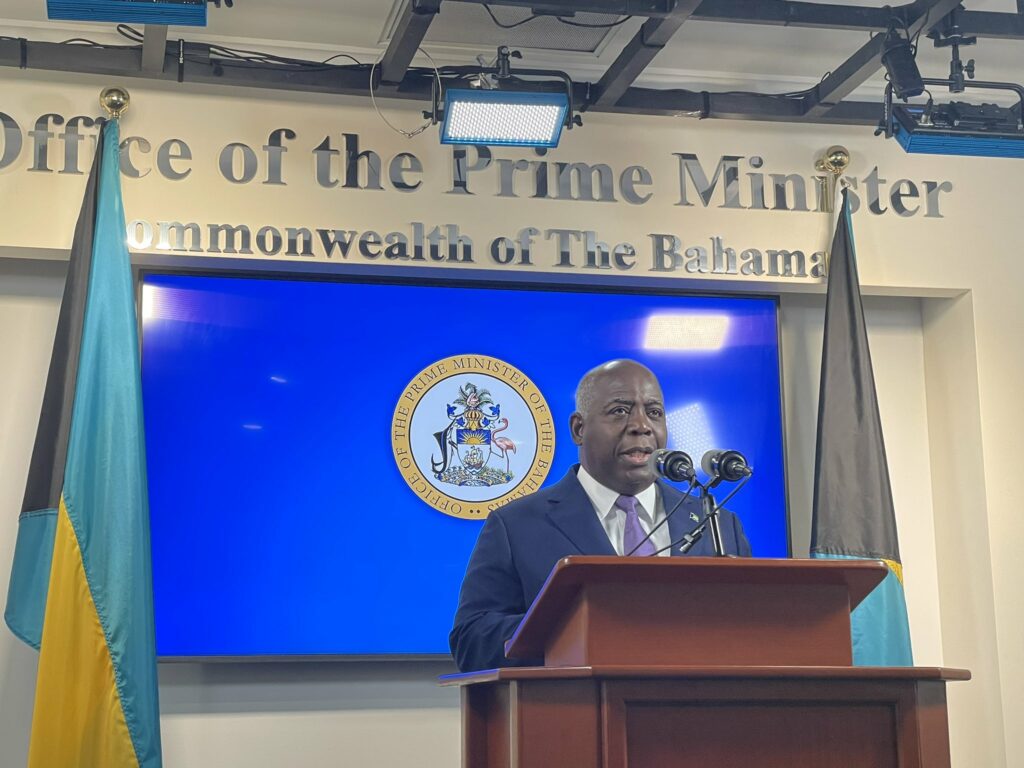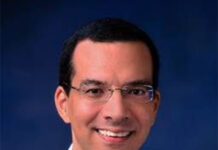Statement by Hon. Philip Davis KC, MP Prime Minister and Minister of Finance Concerning The increase in Fuel Tariff Being Introduced by Bahamas Power & Light

Good morning, everyone.
Next Tuesday, a week from today, I will deliver a National Address to the country. I look forward to sharing my thoughts about the progress we’ve made in our first year of governance, the challenges and opportunities for our country, and the way forward.
This morning I wanted to speak about an important development which is being announced by the Bahamas Power & Light Company.
Today, BPL is announcing an increase in the monthly fuel charge.
For a large majority of BPL customers, who consume less than 800 kWh (kilowatt hours), the fuel charge is increasing by 2 cents per kWh, which will result in an increase this quarter of less than $20 per month. If your current monthly bill is $182 or less, you fall in this category.
For those who consume more than 800 kWh, the increase will be 4.3 cents per kWh. I want to note here that we will raise the VAT ceiling from $300 to $400, so going forward, no VAT will be due on any electricity bills under $400, which will take some of the sting out of the 4.3 cent increase for a great many BPL consumers subject to the larger increase.
BPL will provide additional details of these changes, which phase in over time. The bottom line is that monthly bills will go up over the next several quarters, before they begin to come down, in 12 to 18 months.
I know these short-term increases are very unwelcome news.
And I know these increases are coming at a time when a great many families are already struggling. As you know all too well, our country has for several years been in a very serious economic and fiscal crisis.
We’ve come a long way over the last year. We have started our recovery in a very meaningful way: a lot more Bahamians are working, and we are reducing the nation’s debt burden and we have stabilized our finances
But there’s still a long way to go. There are too many households where no one has found work yet, or one job is supporting a large family.
And after Hurricane Dorian, and the COVID lockdowns, when finally, things were starting to look up, we were hit by another big shock to our economy — a global inflation crisis – a crisis caused by supply chain interruptions and other kinds of fallout from the pandemic.
Prices have increased on nearly everything, everywhere – and you all know that global inflation hits those of us who live in small island nations especially hard.
On top of that, in February, the Russian-Ukrainian war began, disrupting global trade and raising oil and gas prices sharply.
There was [a] discussion at that time about increasing BPL’s monthly fuel charge.
We made the decision to postpone the increase and keep the charge low as long as possible, given the hardship Bahamian households were facing after so many difficult years in a row, and given other inflationary pressures. Our economy is growing, adding new jobs every month, and I wanted to see more Bahamians working before we asked families to pay a higher light bill. When times are tough, coming up with an extra $20 a month is no small thing.
Introducing the increase at this time of the year, coincides with lower electricity consumption as opposed to the increase coming during the spring and summer months, when people consume more electricity.
During this interim period, the government decided to provide support for BPL operations for an interim period.
Unfortunately, we can’t postpone the increase any longer. Now that we are past summer, and moving into a period of lower electricity usage, the government has approved BPL’s request for this phased-in increase.
We have worked to minimize the impact in multiple ways: First, those who consume less, and a great many households fall in this category, will see a lower increase – 2 cents instead of 4.3 cents per kilowatt hour. Second, the increases are phased in over time, allowing consumers to plan ahead. And
third, the VAT ceiling for electricity will now be raised from $300 to $400, so no VAT will be due on bills up to $400.
And most importantly, these increases are short-term.
After implementing price increases in stages, over the next four quarters, BPL calculates that the fuel charge will begin to come down.
I want to talk for a moment about how this all fits into the bigger energy picture.
Since day one, one of our key priorities has been to transition The Bahamas to cleaner, mor affordable energy.
That shift is underway, with solar micro-grids in the Family Islands, which are already operating and will be expanded to benefit 17,000 Family Islanders.
Solar panels will be added to public buildings like schools, clinics, and libraries.
The launch of a 60-Megawatt solar farm in New Providence in the next 12 months means that approximately 25-30% of the island’s electricity needs will come from solar, resulting in less expensive, cleaner energy for residents.
These and other initiatives are important steps in the right direction. But to really change our country’s energy infrastructure – to change how we generate, transmit, and store energy across the whole country – involves huge investments, especially in an archipelago.
We have been working to find a way to fund this transition to cleaner energy and renewables, despite our enormous debt burden and fiscal crisis.
This is one of the reasons I have worked so hard for our country to be the first in the world to sell blue carbon credits. We are going to protect our seagrasses and mangroves, and at the same time, earn revenue for the role they play in removing carbon from the atmosphere. We believe that using the new revenue from carbon credits to invest in renewable infrastructure is going to be an important part of the way forward on clean energy.
For too long, high energy costs have hurt households and businesses alike.
I know the short-term increases announced today are very unwelcome news.
I wanted to be the one to tell you. And I ask you to hang in there just a little longer – our country is finally on a path to a very different energy future.
Thank you.
END







